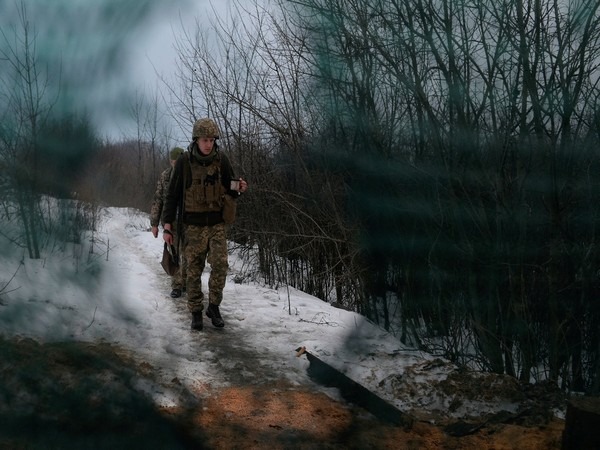
Blackouts as Moscow bombards Ukrainian energy infrastructure
Feb 12, 2023
Kiev [Ukraine], February 12: Only a few hours after the European Union pledged new aid for Ukraine, Russia responded with a massive wave of drone and missile attacks that targeted energy infrastructure.
The authorities in Kiev said Moscow's forces unleashed 71 cruise missiles on Ukraine, of which 61 were intercepted.
The missiles were launched from Russian ships and aircraft, said the Ukrainian general staff in its evening situation report.
Russia also fired 29 missiles from the S-300 system, which is actually intended for air defence, at ground targets in Ukraine, according to initial figures that could not be independently verified.
Six regions faced problems with the power supply and an air alert sounded throughout the embattled nation on Friday afternoon.
"The occupiers have launched strikes on critical infrastructure," Kharkiv's military governor OlehSynehubov reported on Friday. Some 150,000 households were without electricity, he said.
In the Zaporizhzhya region in the south-east, officials said 17 projectiles hit within an hour. A senior official in the Zaporizhzhya city council, Anatoly Kuryev, described it on his Telegram channel as the "largest number since the beginning of the invasion." Further north, close to the Russian border, Synehubov wrote on Telegram that 10 strikes were registered in his area. In the morning, sirens were wailing again throughout the country, forcing many people to shelters once again.
The missiles hit several thermal and hydroelectric power plants, Ukrenerho chief executive VolodymyrKudrytskyi told Ukrainian television, saying the situation was particularly difficult in Kharkiv.
The attack set back plans to restore Ukraine's power supply, Kudrytskyi said. "But once again, no disaster has happened." The Rivne and southern Ukraine nuclear power plants had to scale down production due to instability, according to the International Atomic Energy Agency (IAEA). One of the reactors was shut down at the Khmelnytskyi nuclear power plant.
Ukrainian President VolodymyrZelensky described the attacks as terror "that can and must be stopped" and issued a renewed plea for more weapons.
Ukraine is already bracing for fresh Russian offensives on the first anniversary of the start of the war on February 24 and the latest attacks came as Zelensky asked for extra EU and NATO help.
He has been making the requests for weeks now, pointing out that Russian aggression is a threat to the international community.
He returned hopeful after talks in Brussels and other European cities.
"London, Paris, Brussels - everywhere I have talked these days about how we can strengthen our soldiers," he said in a video message on Friday evening. "There are very important agreements and we have received good signals." Meanwhile a London assessment said Russian forces have likely made tactical gains since Tuesday, with advances from both the paramilitary Wagner Group and the regular army.
On the northern outskirts of the eastern Donbass town of Bakhmut, Wagner forces have pushed as much as 3 kilometres further west. They now control the countryside near the main route into the town, with Russian forces increasingly dominating the northern approaches to Bakhmut, according to an intelligence update on Friday from the British Defence Ministry.
In the southern Donbass region, Russian units have made advances around the western outskirts of Vuhledar, where they re-launched offensive operations late last month.
But British defence officials noted that Russian units have likely suffered particularly heavy casualties around Vuhledar, as inexperienced units have been sent to the front.
It said the troops "likely fled and abandoned at least 30 mostly intact armoured vehicles in a single incident after a failed assault."
Source: Qatar Tribune






